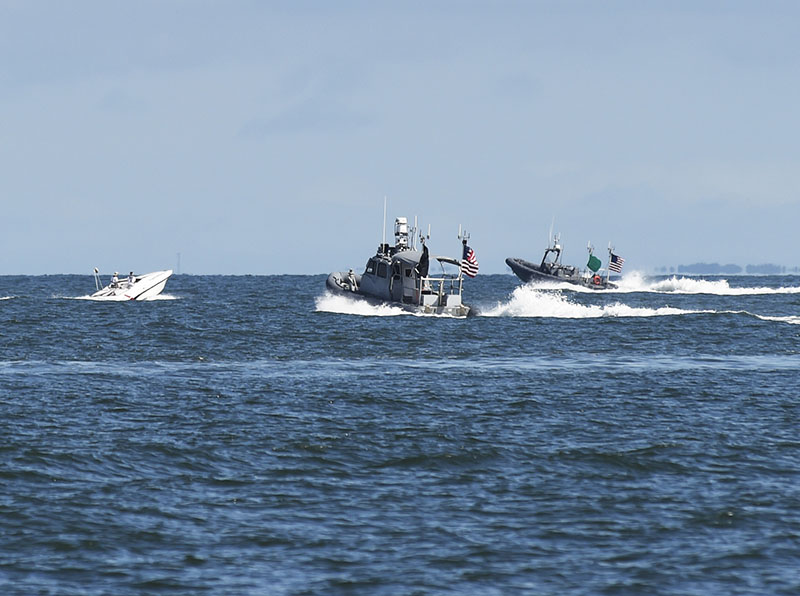Autonomous, unmanned “swarming boats” that can patrol and defend harbors are being developed for the U.S. Navy — a high-tech defense against adversaries’ manned low-tech, small attack boats that can threaten Navy ships.
The Office of Naval Research with industry and scientific partners staged a demonstration on Chesapeake Bay in September and October, orchestrating a swarm of four drone rigid hull inflatables and small patrol craft to simulate harbor approach defense.
The technology is called Control Architecture for Robotic Agent Command and Sensing, or CARACAS, using some commercial off-the-shelf equipment to develop systems far less expensive than the cost of operating crewed vessels for routine patrol work.
In contrast to remotely controlled boats using human pilots, ONR officials say the software enables the autonomous boats to have perception — the ability to detect a potential intruder vessel, and make a decision to follow it.
The exercise had the unmanned boats patrolling a large area of open water, as an unknown vessel entered. With their mix of radar, sensors, software, and watched by human supervisors, the boats dispatched one of their number to approach, while others continued to track it and patrol the area, Navy officials said.
“This technology allows unmanned Navy ships to overwhelm an adversary,” said Cmdr. Luis Molina, military deputy for ONR’s Sea Warfare and Weapons Department. “Its sensors and software enable swarming capability, giving naval warfighters a decisive edge.”
The “Swarm2” event built on improvements to the system since an early demonstration on the James River in Virginia in August 2014. Autonomous watercraft are well along in development for other U.S. military users, such as a 35’x8’ special operations craft prototype developed at Swiftships in Morgan City, La.
On the civilian side, first-generation autonomous technology is already routinely used in small vessels and probes for scientific research and survey missions. Design firms like Robert Allan Ltd., Vancouver, British Columbia, and Boston-based Sea Machines are working toward utilizing next-generation technology in workboats, such as autonomous ship assist tugs that could someday work cooperatively with manned vessels.




